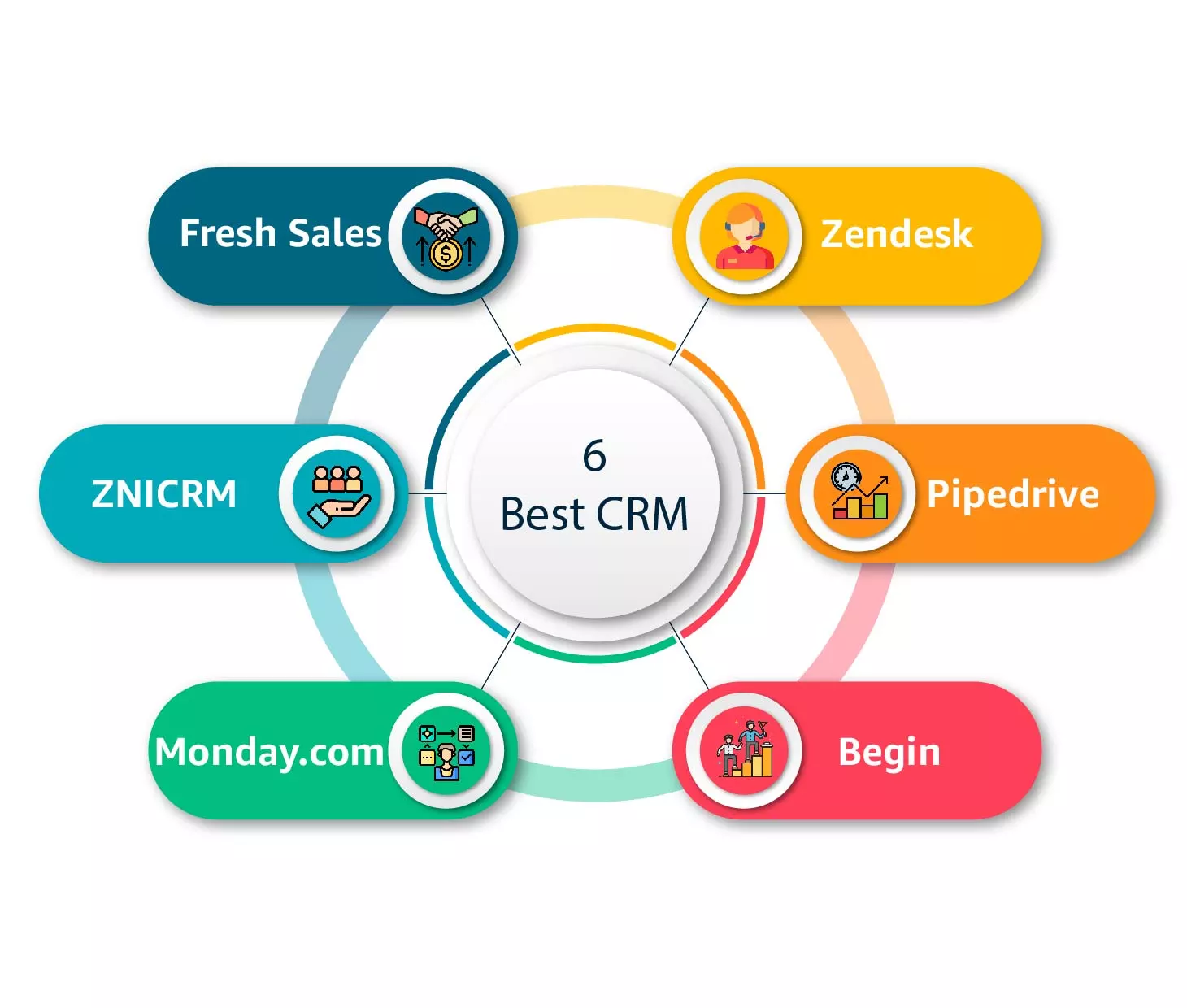In today’s competitive landscape, small businesses need every advantage they can get. A Customer Relationship Management (CRM) system can be a game-changer, helping you organize customer data, streamline sales processes, and improve customer satisfaction. But with so many options available, finding the right CRM, especially on a budget, can be a challenge. This guide will explore six free or low-cost CRM solutions designed with small businesses in mind. We’ll delve into their features, pricing, and ideal use cases to help you choose the perfect fit for your needs.
Why CRM Matters for Small Businesses
Before we dive into the options, let’s recap why a CRM is essential for small businesses:
- Centralized Customer Data: No more scattered spreadsheets! A CRM provides a single repository for all customer information, making it easily accessible to your team.
- Improved Sales Management: Track leads, manage deals, and forecast sales with precision.
- Enhanced Customer Service: Resolve issues faster and provide personalized support.
- Marketing Automation: Segment your audience, personalize campaigns, and track results.
- Data-Driven Decisions: Gain insights into customer behavior to refine your strategies.
1. HubSpot CRM (Free)
- Key Features: Contact management, deal tracking, email marketing, live chat, meeting scheduling.
- Pros: User-friendly interface, robust free features, seamless integration with other HubSpot tools.
- Cons: Limited features on the free plan, advanced marketing automation requires paid upgrades.
- Ideal For: Small businesses seeking a comprehensive CRM solution with a generous free plan.
2. Zoho CRM (Free for up to 3 users)
- Key Features: Lead and contact management, sales pipeline tracking, email marketing, workflow automation.
- Pros: Customizable, extensive feature set, affordable paid plans.
- Cons: Steeper learning curve compared to some other options.
- Ideal For: Businesses that need a scalable CRM with advanced automation capabilities.
3. Bitrix24 (Free for up to 12 users)
- Key Features: CRM, project management, team collaboration, website builder, HR tools.
- Pros: All-in-one solution, wide range of features, large free user limit.
- Cons: Can be overwhelming for businesses that only need CRM functionality.
- Ideal For: Growing teams that require a comprehensive platform for collaboration and project management.
4. Streak (Free for basic CRM features)
- Key Features: Email-based CRM, pipeline management directly in Gmail, mail merge.
- Pros: Seamless Gmail integration, simple and intuitive interface.
- Cons: Limited feature set compared to other options.
- Ideal For: Small businesses that primarily manage customer relationships through email.
5. EngageBay (Free for up to 15 users)
- Key Features: CRM, marketing automation, helpdesk, live chat.
- Pros: Affordable all-in-one solution, extensive feature set for the price.
- Cons: Interface not as polished as some competitors.
- Ideal For: Budget-conscious businesses looking for a comprehensive marketing and sales platform.
6. Capsule CRM (Free for up to 2 users)
- Key Features: Contact and sales management, pipeline tracking, calendar and task integration.
- Pros: Easy to use, visual sales pipeline, good value on paid plans.
- Cons: Limited features on the free plan.
- Ideal For: Small businesses and solopreneurs seeking a simple and intuitive CRM.
Choosing the Right CRM for Your Business
Consider these factors when selecting a CRM:
- Your budget: How much are you willing to spend? Start with a free plan and upgrade as needed.
- Features: Which features are essential for your business? Prioritize those that align with your goals.
- Ease of use: How tech-savvy is your team? Choose a user-friendly platform to ensure adoption.
- Scalability: Will your needs change as your business grows? Opt for a CRM that can scale with you.
- Integrations: Does the CRM integrate with other tools you use (e.g., email marketing, accounting)?
Conclusion
A CRM can be a powerful asset for small businesses, helping you build stronger customer relationships, increase sales, and make informed decisions. With the variety of free and low-cost options available, there’s a perfect CRM out there for your business. Take the time to explore your choices and find the one that best meets your unique needs.
FAQs:
1. Do I really need a CRM if my business is small?
Yes, even small businesses can benefit greatly from a CRM. It helps you keep track of customer interactions, manage leads effectively, and gain insights into customer behavior. This, in turn, can lead to better sales and stronger relationships.
2. What features should I prioritize in a CRM for my small business?
Consider your specific needs. Common features include contact management, lead tracking, sales pipeline management, email marketing, and basic reporting. Some CRMs offer additional features like marketing automation or helpdesk integration. Focus on features that will have the most significant impact on your business.
3. Can I start with a free CRM and upgrade later?
Absolutely! Many CRMs offer free plans with limited features. This is a great way to test the waters and see if the CRM is a good fit for your business. If you find that you need more advanced features, you can always upgrade to a paid plan later.
4. How do I ensure my team actually uses the CRM?
Choose a CRM that is user-friendly and intuitive. Provide adequate training and resources to your team so they understand how to use the CRM effectively. Make it clear how the CRM will benefit them and the company as a whole.
5. What’s the difference between a CRM and email marketing software?
While both tools can help manage customer relationships, they have different focuses. A CRM is designed to manage all aspects of customer interactions, including sales, marketing, and customer service. Email marketing software focuses specifically on email campaigns, including creating, sending, and tracking emails. Some CRMs offer built-in email marketing features, while others integrate with popular email marketing platforms.
